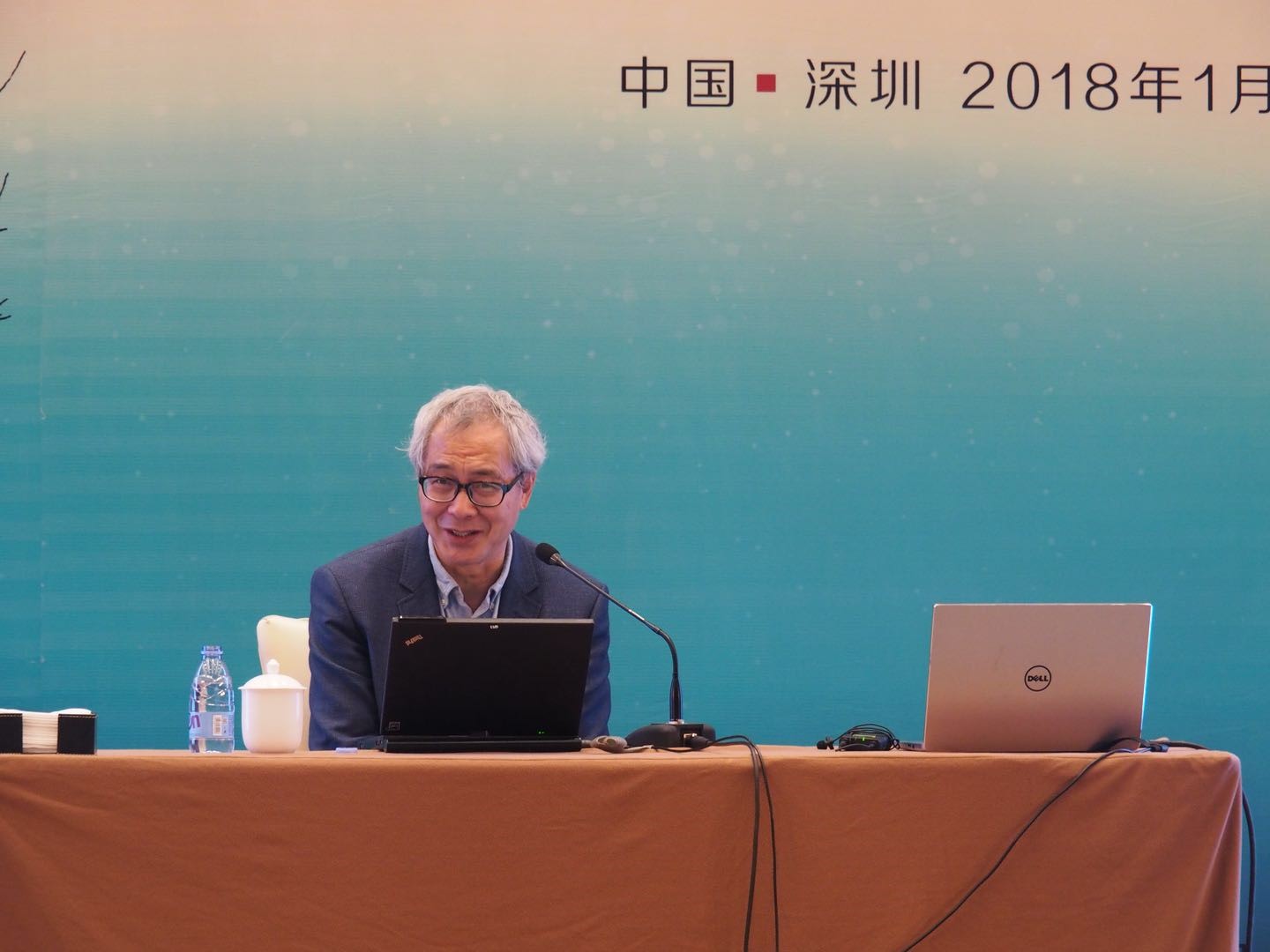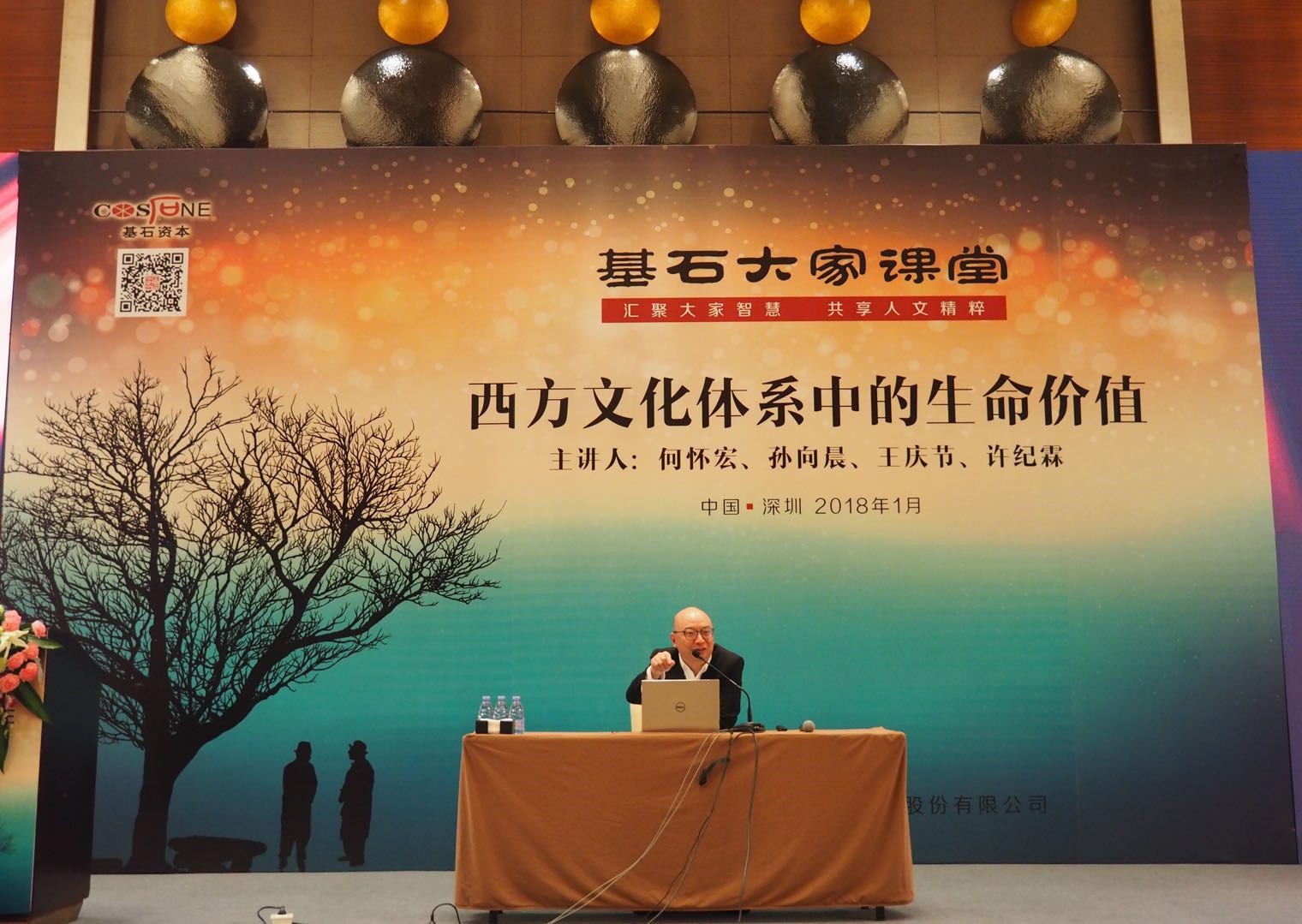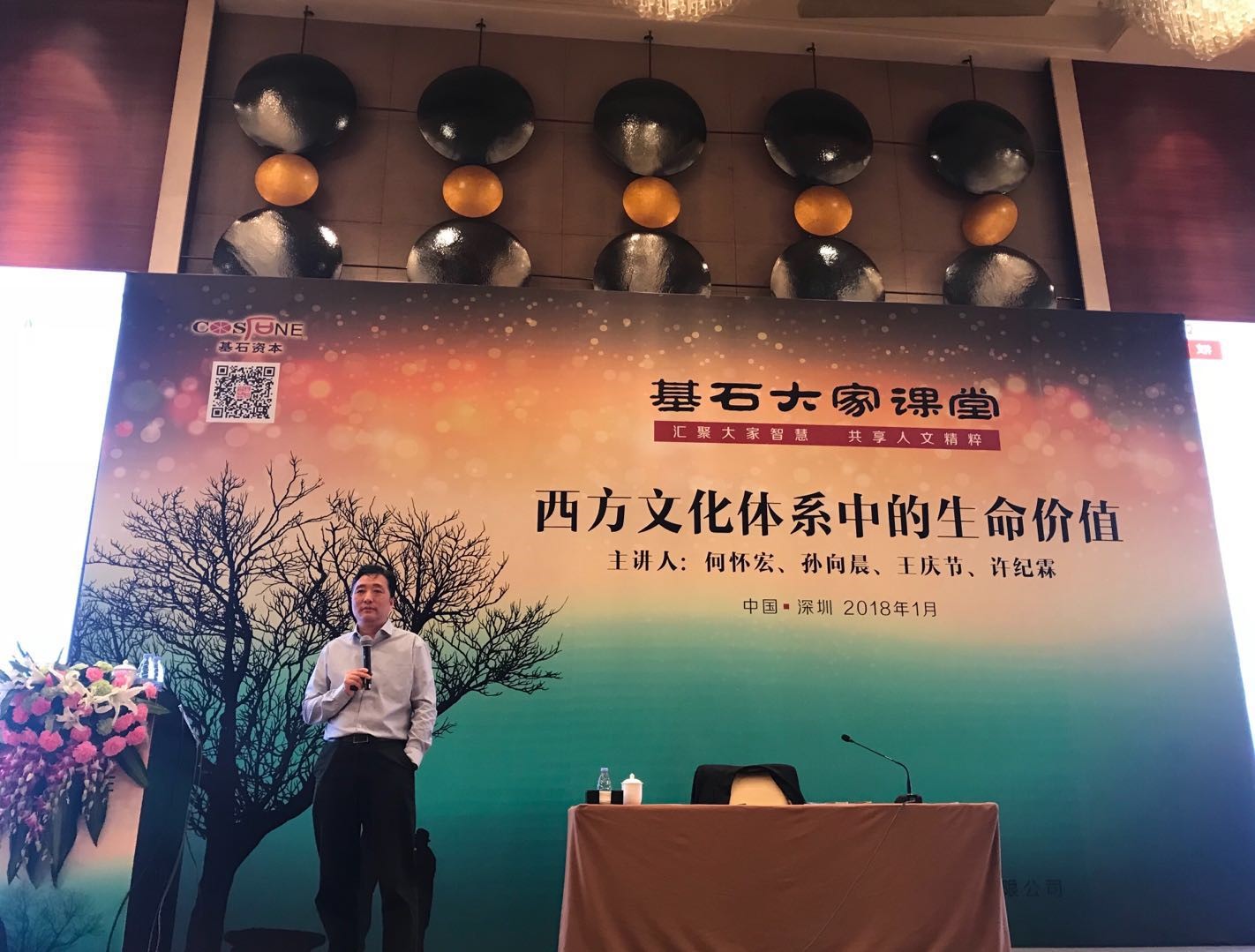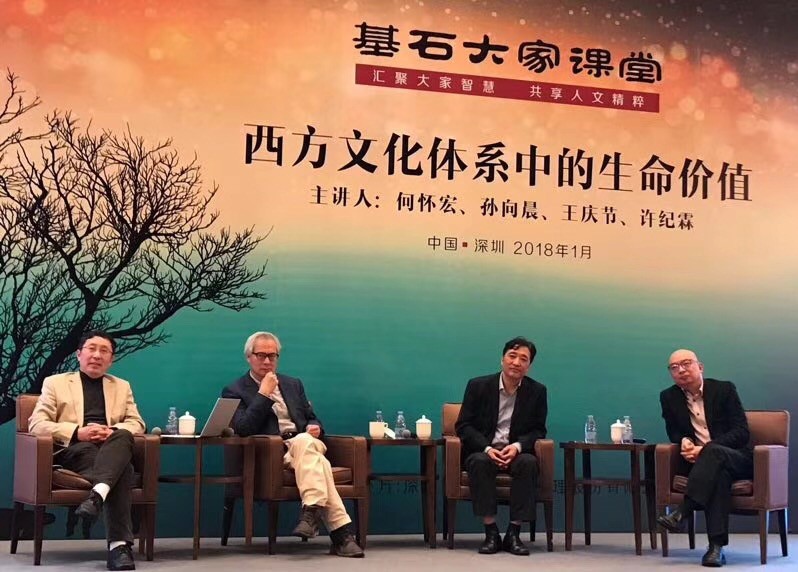2018.01.08 CoStone Capital Views:
On January 6 and 7, the sixteenth CoStone Master Forum witnessed informative talks on The Value of Life in Western Culture. Professor Xu Jilin at East China Normal University, Professor He Huaihong at Peking University, Professor Sun Xiangchen at Fudan University and Professor Wang Qingjie at the Chinese University of Hong Kong explored the topic deeply in the forum.
On January 6 and 7, the sixteenth CoStone Master Forum witnessed informative talks on The Value of Life in Western Culture. Professor Xu Jilin at East China Normal University, Professor He Huaihong at Peking University, Professor Sun Xiangchen at Fudan University and Professor Wang Qingjie at the Chinese University of Hong Kong explored the topic deeply in the forum.

He Huaihong on Greek Philosophies of Life
Professor He lectured on the ancient Greeks' political ideas, moral sentiments, and understandings of goodness and obligations from five aspects: pursuing excellence and loving wisdom; knowing yourself; seeking truth and upholding justice; learning human nature and mastering your destiny; and following the mean principle and understanding happiness. He then applied the ancient Greek philosophies to the modern life, which provided an inspirational perspective on life.

Sun Xiangchen on The Life and Death in Christian Culture
Professor Sun also divided his speech into five parts: traditional understandings of the meaning of life; the basic content of Christian doctrine; death in the Old Testament and the New Testament; death in Christian culture; and the way to lead a meaningful life in the modern world.

Wang Qingjie on The Meaning of Life in Modern Western Philosophy
Professor Wang's lecture included three main points. They were the value and meaning of human life, the status of man in western "modernity" and the survival crisis of "humans" and the hope of "being-towards-death" in the post-modern context.

Dialogue: Between Poetry and Cruelty
The last part of the forum was an in-depth dialogue among the four professors moderated by Professor Xu. The first half of the dialogue centered on "life" and the second half on "death". From the perspective of western philosophy, the professors offered answers to the problems related to life people encountered every day.
Speaker
He Huaihong
He Huaihong is a doctor of philosophy and Professor at the Department of Philosophy, Peking University. In the 1980s, he focused on western philosophy, Ethics and translation, having translated A Theory of Justice,Anarchy, State, and Utopia, and The System of Ethics into Chinese. Since the 1990s, he has been devoted to writing articles on principles of ethics and Chinese history and culture. He has started to research on applied ethics and pays close attention to the relationship between spiritual beliefs and modern society. Reflection on Life and Morality·God and Man are his representative works.
Sun Xiangchen
Sun Xiangchen is a doctor of philosophy and professor. His areas of particular interest include modern western philosophy, enlightenment philosophy, political philosophy, Jewish and Christian philosophy, phenomenology, French philosophy and comparative philosophy. He was a visiting scholar at the Department of Philosophy, Peking University, Regent College, Yale University, the Institute of Sino-Christian Studies, the University of Birmingham, the Munich School of Philosophy, the University of Chicago and National Taiwan University.
Wang Qingjie
Wang Qingjie is Professor at the Department of Philosophy, the Chinese University of Hong Kong. His research focuses on contemporary western continental philosophy, the comparative philosophy between the west and the east and moral philosophy. As a representative scholar studying Heidegger, he is the author of Heidegger: Translation, Understanding and Interpretation and Heidegger and the Beginning of Philosophy, and the translator of Introduction to Metaphysics and Being and Time.
Xu Jilin
Xu Jilin is Professor and PhD Supervisor at the Department of History, East China Normal University, Vice President and General Secretary of Shanghai History Association, Member of the Board of Directors, Association of Chinese Historians, Member of Shanghai Federation of Social Science Associations, and Member of the Editorial Board of Twenty-First Century. His research has been focusing on the history of Chinese thoughts and the intellectuals in the 20 century, and on the urban culture in Shanghai.
Rewritten by Jiang Xiaomei, Edited by Li Yunzhen, Du Zhixin, Wei Yiyi
The year 2019 marks the fortieth anniversary of China’s Reform &Opening-Up, once again, we meet at the turning point of history. What’s the next step for the game, is there any clear guidance? The answer is affirmative.
Our country is enjoying a good momentum of development, which does not come from the Washington Consensus nor the Beijing Consensus. China’s experience has proved that both the visible hand and the invisible hand are crucial: the visible hand, stands for the government-led reform, and would yield benefits for reform and opening up; the invisible hand, stands for the Marginal Power represented by the private sector, and would improve economic efficiency and tax collection, create jobs and employment opportunities.
Provided that we want to protect and expand the benefits form reform, three simple but mandatory agreements are to be made and followed: No.1 Private ownership must be recognized, protected and treated equally with public ownership constitutionally, both ownerships are scared and inviolable;No.2 Make further clarification of the principal position of market economy, “deepen economic system reform by centering on the decisive role of the market in allocating resources”, as President Xi addressed in the third Plenary Session of the 18th CPC Central Committee;No.3 Implement the guiding principles of “comprehensively promoting law-based governance” of the fourth plenum. The rule of law is essential for economic growth, irreplaceable to protect private ownership, and necessary to encourage innovation and entrepreneurship.
Above are three rules for us to avoid falling into the Middle-income Trap. Assuming that we are breaking systematic barriers to private enterprises’ participation in market economy, and boosting innovation and entrepreneurship of our society, then we are heading towards a promoting direction. We are marching in the path of light, regardless of the ups and downs of Sino-US relationship, the drop in GDP growth rate, or the monetary policy.
These principals also apply on knowing how better to run a business: don’t be hedged by rules and regulations at the beginning, pay more attention to your survival, and you’ll learn more when you start your second business.
For many years, Huawei has been the only Chinese company on the list of the Top 50 R&D Spenders. Regardless of the economy and its income, what Huawei has been doing is investing in its future, dedicated to R&D, continuously and resolutely. This provisional work underscores Huawei’s accomplishments, making Huawei anindustry leader.
So, there are standard answers on how to run a company,which could be summarized as concentration and professional dedication, continuous investment on innovation and trying harder in R&D. Entrepreneurship is also important, every single company needs entrepreneurs to push aside all obstacles and difficulties, to implement strategies and ideas. We, as investors, are destined to look for such outstanding entrepreneurs and their companies, invest in them and partner with them.
At this key point of history, a country, a company, or asingle individual, will all need to find the right path. Four decades after the Reform and Opening-up, it’s time to learn from our experience and stop “wadding across
